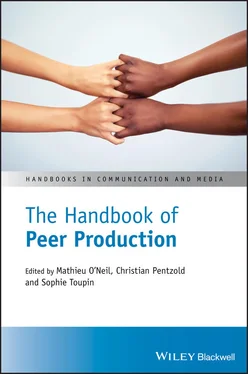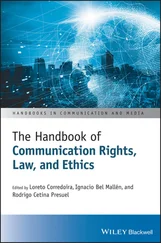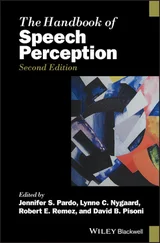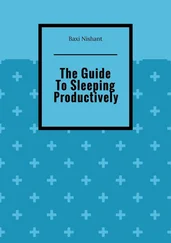George Dafermosis a postdoctoral researcher at the Heteropolitics research project at the Aristotle University of Thessaloniki, Greece, where he explores the transformative potential of commons‐based peer production. He has been involved in several of the projects mentioned in the chapter “Prophets and Advocates of Peer Production”: he was a participant in the Oekonux Project (2002–2013) and a core member of the FLOK Society Project in Ecuador (2013–2014). He is also a founding member of the Journal of Peer Production and a research associate of the P2P Foundation.
Maitrayee Dekais a Lecturer in Media and Social Theory at the Department of Sociology, University of Essex, UK. Her research focuses on economic sociology, new media, consumption cultures, and social theory. She is currently working on her monograph, Traders and Tinkers: The Popular Economy of the Bazaar that is based on an ethnographic account of Delhi’s electronic marketplaces. Her most recent publication is “Embodied Commons: Knowledge and Sharing in Delhi’s Electronic Bazaars,” The Sociological Review , 66(2), 365–380, 2018.
Wolfgang Drechsleris Professor of Governance at the Ragnar Nurkse Department of Innovation and Governance, Tallinn University of Technology, Estonia, Honorary Professor at University College London in the Institute of Innovation and Public Purpose, UK, and Associate and member of the advisory board at Harvard University’s Davis Center, USA. In civil service, he has been Advisor to the President of Estonia, Executive Secretary with the German Wissenschaftsrat, and, as an APSA Congressional Fellow, Senior Legislative Analyst in the United States Congress. Wolfgang’s main interests are Public Management, Technology, and Innovation; Non‐Western Public Administration, Governance, and Economics (especially Buddhist, Confucian, and Islamic); and Public Management Reform generally.
Mélanie Dulong de Rosnay, PhD in law, has been an associate research professor at the French National Centre for Scientific Research (CNRS) since 2010 and is the director of the Center for Internet and Society of CNRS (UPR 2000) which she co‐founded with Francesca Musiani in 2019. Her research focuses on digital commons, regulation by technology, information technology law and policy. She has co‐edited four open access collective books on the digital public domain and digital commons. She is a founding member and was the legal lead for Creative Commons France, a fellow at Science Commons, a staff member of Creative Commons Netherlands, a staff member of the Communia European Thematic Network, and a founding member of the Communia association for the digital public domain, which she represented at the World Intellectual Property Organization (WIPO) as the first chair of its administrative council. She was also member of the board and vice‐president of the scientific board of OpenEdition scientific publishing platform (2010–2019). melanie.dulong@cnrs.fr; @melanieddr
Adam Fishis an associate professor and Scientia fellow in the Faculty of Arts and Social Sciences, School of Arts and Media, at the University of New South Wales. He is a cultural anthropologist, documentary video producer, and interdisciplinary scholar who works across social science, computer engineering, environmental science, and the visual arts. Dr. Fish employs ethnographic, participatory, and creative methods to examine the social, political, and ecological influences of new technologies. He has authored three books including: Hacker States (2020 MIT Press with Luca Follis), about how state hacking impacts democracy; Technoliberalism (2017 Palgrave Macmillan), an ethnography of the politics of Internet and television convergence in Hollywood and Silicon Valley; and After the Internet (2017 Polity Press with Ramesh Srinivasan), which reimagines the Internet from the perspective of grassroots activists, citizens, and hackers on the margins of political and economic power. He is currently completing a book, Drone Justice, with MIT Press.
Jutta Haideris Professor of Information Studies at the Swedish School of Library and Information Science, University of Borås, and Reader in Information Studies at Lund University, both in Sweden. She holds a doctorate from City, University of London, UK (2008). Her research concerns information practices and infrastructures in relation to digital cultures’ conditions for production, use, and distribution of knowledge and information. This includes research on information inequalities and on knowledge institutions, such as encyclopedias, search engines, and the scholarly communication system. She is author of Invisible Search and Online Search Engines: The Ubiquity of Search in Everyday Life (Routledge, 2019).
Rebecca Karpis a PhD candidate at Boston University Questrom School of Business, Boston, USA. She is a field researcher who studies how firms and collectives learn, adapt, and upend their strategies for growth and sustained competitive advantage when confronted with how different market actors interact with their innovations. Her research specifically considers how innovators deploy resources to gain market acceptance, economic traction, and grow market relevancy for their innovations.
Vasilis Kostakisis the Professor of P2P Governance within the Ragnar Nurkse Department of Innovation and Governance at TalTech, Estonia. He is also a Faculty Associate within the Berkman Klein Center for Internet and Society at Harvard University, and a Visiting Professor within the Institute of Environmental Science and Technology at Autonomous University of Barcelona. He is the founder of the P2P Lab. In 2018, Vasilis was awarded a four‐year grant from the European Research Council, to study the convergence of the digital commons with local manufacturing technologies. Along with an interdisciplinary team of scholars, activists, and social entrepreneurs, Vasilis focuses on how to create an economy based on locally sustainable communities that are digitally interconnected. His work has appeared in 15 languages.
Mariam Meckyis an Egyptian feminist researcher. She received an MA in Gender Studies and Law at SOAS, University of London in 2018 as a Chevening Scholar and a BA in Political Science from the British University in Egypt in 2013. Mecky has worked as a researcher, journalist, and NGO worker focusing broadly on gender issues and politics in Egypt and the MENA region at large. Alongside her current research work, she is the Communication Unit head at HarassMap, an anti‐sexual harassment NGO in Egypt. Her interests include but are not limited to: feminist mobilization and activism, gender‐based violence, body politics, resistance, and legal reform.
Morgan Meyeris a research director at the French National Centre for Scientific Research (CNRS). He holds a PhD in Sociology (University of Sheffield) and has been a visiting professor at the University of Vienna (Department of Science and Technology Studies) and a visiting researcher at the University of Edinburgh (Genomics Forum). His research concentrates on three main topics: (1) participation and co‐production of knowledge (natural history, do‐it‐yourself biology, open source agriculture), (2) new configurations and communities in biology (synthetic biology, gene editing), (3) intermediation, translation, and representation of knowledge.
Stefania Milanis a digital sociologist interested in new forms of political participation facilitated by technological innovation. Stefania is Associate Professor in New Media and Digital Culture at the University of Amsterdam, the Netherlands, where she leads a research project exploring the design and governance of technology standards from a human rights perspective, funded by the Dutch Research Council. Previously she worked at the European University Institute, Central European University, Tilburg University, the Citizen Lab at the University of Toronto, and the University of Oslo. In 2015–2021 she was the principal investigator of two projects financed by the European Research Council exploring data‐ and algorithmic‐mediated forms of civic engagement (data‐activism.net and algorithms.exposed). She is the author of, among others, Social Movements and their Technologies: Wiring Social Change (Palgrave Macmillan, 2013/2016), and co‐author of Media/Society (Sage, 2011). Stefania enjoys creating bridges between research, activism, and policymaking, and experimenting with methodological innovation. Website: stefaniamilan.net
Читать дальше


![О Генри - Справочник Гименея [The Handbook of Hymen]](/books/407356/o-genri-spravochnik-gimeneya-the-handbook-of-hymen-thumb.webp)









